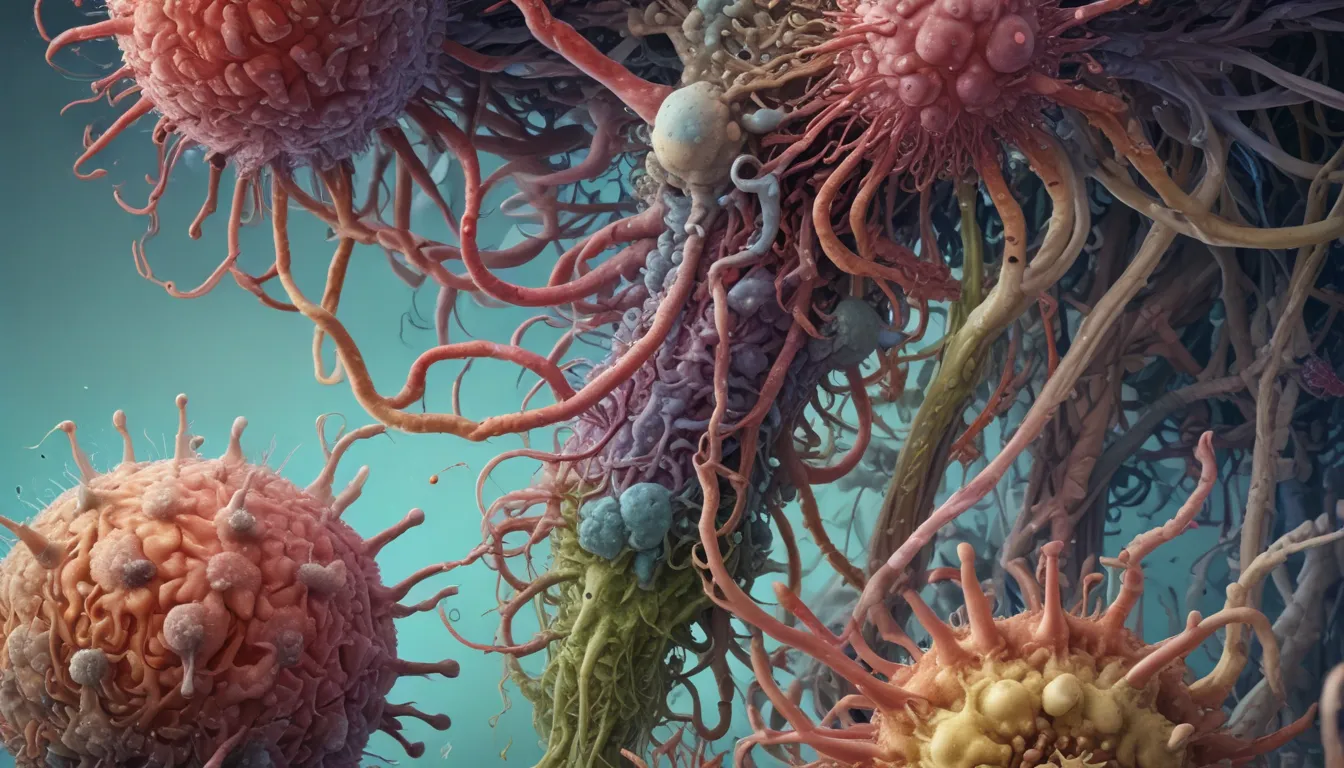A Note About Images: The images used in our articles are for illustration purposes only and may not exactly match the content. They are meant to engage readers, but the text should be relied upon for accurate information.
In the captivating realm of microbiology, the study of microbial pathogenesis stands out as a riveting intersection of biology, medicine, and public health. This field delves into the mechanisms by which tiny organisms, known as microbes, infiltrate living organisms and cause an array of diseases. By unraveling the secrets of microbial pathogenesis, researchers aim to develop effective strategies to combat infectious diseases and safeguard human and animal health.
Understanding Microbial Pathogenesis
At its core, microbial pathogenesis focuses on deciphering how disease-causing microorganisms interact with their hosts, culminating in the onset of infectious diseases. This multifaceted discipline involves exploring how pathogens invade, establish colonies, and inflict harm upon their hosts, alongside the intricate dance of the host’s immune response to combat these insidious invaders.
Microbes’ Manipulation of Host Cells
One of the most intriguing facets of microbial pathogenesis is the ability of certain pathogens to manipulate host cells for their own benefit. For instance, some bacteria possess the capability to inject effector proteins into host cells, thereby altering their functions and creating a conducive environment for the pathogen’s survival and proliferation.
Unveiling the Role of Virulence Factors
Central to the pathogenicity of microbes are virulence factors, which encompass specific traits or molecules that empower pathogens to induce disease. These factors can manifest as adhesion molecules facilitating microbe attachment to host cells, toxins that wreak havoc on host tissues, or enzymes that disrupt normal physiological processes. Understanding these virulence factors is pivotal in devising effective strategies to combat pathogenic infections.
Dynamics of Microbial Pathogenesis
The interplay between pathogens and their hosts is a dynamic realm characterized by rapid evolution on both fronts. Microbes exhibit a remarkable ability to evolve swiftly, devising novel tactics to evade the host’s immune defenses. Concurrently, the host’s immune response adapts and mounts targeted defenses against specific pathogens. This dynamic nature renders microbial pathogenesis a constantly evolving field of study.
Diverse Microbial Pathogens
A wealth of microorganisms, spanning bacteria, viruses, fungi, and parasites, can incite diseases in hosts. Each type of microbe boasts unique mechanisms for causing disease, underscoring the diverse and multidisciplinary nature of microbial pathogenesis as a field of inquiry.
Host Genetics and Disease Susceptibility
Host genetics play a pivotal role in determining an individual’s susceptibility to diseases triggered by microbial pathogens. Genetic variations in immune system genes can impact the host’s ability to recognize and mount an effective response against specific pathogens, thereby influencing the course of infection.
Resilient Biofilms
Many pathogenic microorganisms possess the capability to form biofilms, intricate communities of microbes ensconced within a protective matrix. Biofilms pose a formidable challenge in the realm of infectious disease treatment, as they exhibit high resistance to antibiotics and the host’s immune defenses.
Tackling Antimicrobial Resistance
The emergence of antimicrobial resistance looms as a critical concern in microbial pathogenesis. The overuse and misuse of antibiotics have spurred the development of resistant bacterial strains, complicating treatment and escalating the threat of life-threatening infections.
Public Health Implications
Insights gleaned from microbial pathogenesis research wield significant influence in shaping public health policies and guidelines. By unraveling the dynamics of pathogen spread, identifying risk factors, and formulating effective prevention and control measures, researchers bolster public health preparedness to combat infectious diseases.
Impact of the Microbiome
The composition and equilibrium of the microbiome, the universe of microorganisms inhabiting the human body, exert a profound influence on microbial pathogenesis. Disruptions to the microbiome can alter the pathogen-host interactions, potentially fostering the onset of infections.
Driving Force of Vaccine Development
A comprehensive comprehension of microbial pathogenesis fuels the development of vaccines. By targeting specific pathogens and stimulating the immune system to mount a defensive response against them, vaccines hold the promise of preventing illnesses or mitigating their severity.
Influence of Human Behavior
Human behavior plays a pivotal role in the transmission and dissemination of infectious diseases. Factors such as hygiene practices, sanitation standards, and exposure to contaminated surfaces or individuals can modulate the likelihood of acquiring pathogenic infections.
Ongoing Research Endeavors
The study of microbial pathogenesis stands as an ever-evolving field, with researchers globally dedicated to unearthing novel insights into pathogen-host interactions, devising innovative treatment modalities, and enhancing our ability to prevent and control infectious diseases.
Through the lens of these 13 captivating facts about microbial pathogenesis, the complexity and allure of this field come to the forefront. Embracing the mechanisms through which microorganisms trigger diseases empowers scientists and healthcare professionals to forge ahead in enhancing diagnostics, treatments, and preventive measures, leading to advancements in global health.
Embracing the Fascination of Microbial Pathogenesis
In conclusion, the landscape of microbial pathogenesis unfurls a captivating tapestry of the intricate dance between microorganisms and their hosts, culminating in the onset of diseases. This symbiotic interplay underscores the urgency of unraveling the complexities of microbial pathogenesis to cultivate effective treatments and preventative strategies against infectious diseases.
FAQs
Q: What is microbial pathogenesis?
A: Microbial pathogenesis delves into how microorganisms like bacteria, viruses, and fungi trigger diseases in their host organisms.
Q: How do pathogens cause damage to host tissues?
A: Pathogens can inflict harm on host tissues through the release of toxins, enzymes, or by prompting an exaggerated immune response leading to inflammation and tissue destruction.
Q: How can we combat microbial pathogenesis?
A: Combatting microbial pathogenesis entails a multifaceted approach encompassing vaccine development, antimicrobial drugs, and the implementation of preventive measures like hygiene practices and infection control protocols.
Intriguingly, akin to microbial pathogenesis, other realms of infectious disease research captivate researchers globally. By delving into fungal diseases, bacterial infections, and viral pathogenesis, scientists glean insights that illuminate the multifaceted world of pathogens and their impact on human health.
At the heart of our commitment lies the delivery of trustworthy and captivating content. Each fact shared on our platform is a collaborative endeavor, with real users like you contributing a diverse array of insights and information. Our dedicated editors rigorously review each submission to ensure the highest standards of accuracy and reliability, guaranteeing that the facts we offer are not only fascinating but also credible. Join us in exploring and learning together, placing your trust in our unwavering dedication to quality and authenticity.




